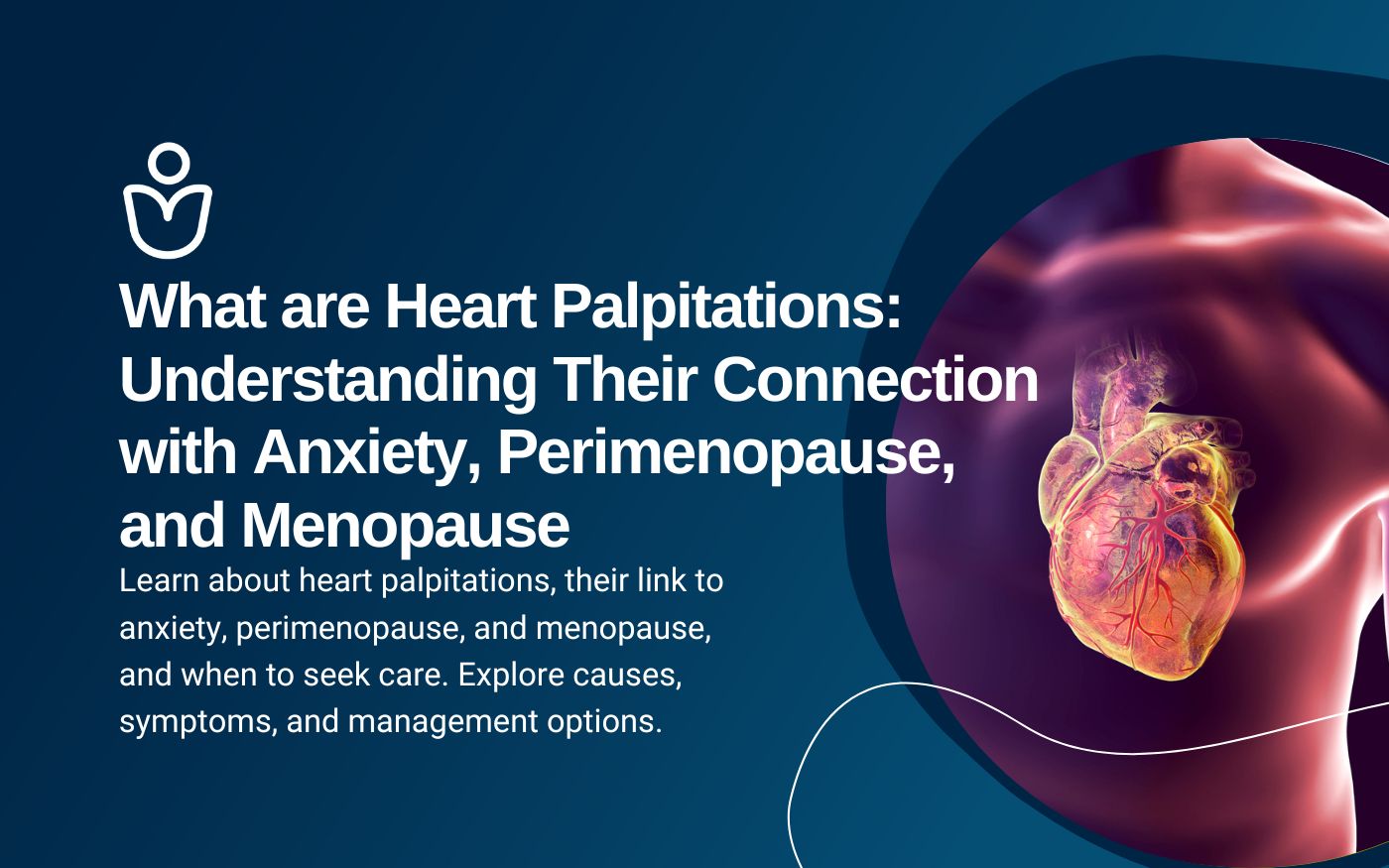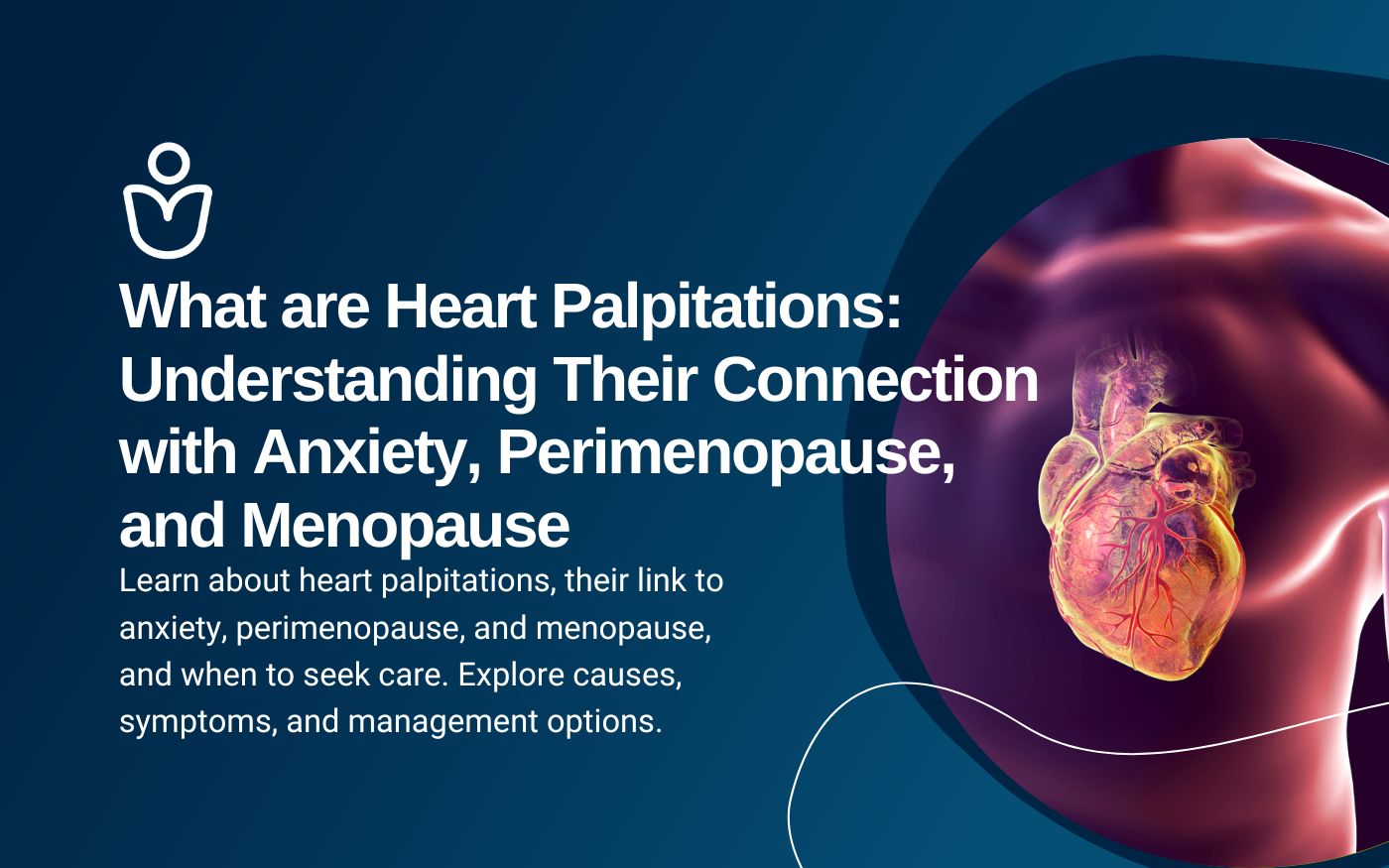Anxiety Causes Heart Palpitations: Understanding the Link
If you’ve ever experienced a racing heart, butterflies in your stomach, and an overwhelming sense of dread – you’re not alone. Anxiety is a common mental health condition that affects millions of people worldwide, and one of its most distressing symptoms is heart palpitations.
Why It Matters
While anxiety itself is a significant concern, the physical manifestations it triggers can be just as debilitating. Heart palpitations, in particular, can have a profound impact on daily life, making even mundane tasks feel like daunting challenges. Moreover, if left unchecked, anxiety-related heart issues can increase the risk of cardiovascular disease and other serious health complications.
The Link Between Anxiety and Heart Palpitations
So, what exactly is the connection between anxiety and heart palpitations? In this post, we’ll delve into the world of psychophysiology to explore the intricate relationship between these two seemingly unrelated phenomena. We’ll examine the biological processes that link anxiety to heart palpitations, discuss the common symptoms, and provide practical tips for managing this distressing symptom.
The Autonomic Nervous System: The Bridge Between Anxiety and Heart Palpitations
At the root of the anxiety-heart palpitation connection lies the autonomic nervous system (ANS). This complex network of nerves regulates various bodily functions, including heart rate, blood pressure, and digestion. When we experience anxiety, our ANS goes into overdrive, triggering a cascade of physiological responses that can manifest as heart palpitations.
The ANS has two main branches: the sympathetic nervous system (SNS) and the parasympathetic nervous system (PNS). The SNS is responsible for the “fight or flight” response, while the PNS promotes relaxation and calmness. In individuals with anxiety, the SNS tends to dominate, leading to increased heart rate, blood pressure, and other physiological changes characteristic of stress.
Stay tuned for Part 2, where we’ll explore the specific symptoms of anxiety-related heart palpitations, discuss common misdiagnoses, and provide actionable advice for managing this distressing symptom.

The Link Between Anxiety and Heart Palpitations: The Role of Stress Hormones
In the previous section, we discussed how the autonomic nervous system plays a crucial role in linking anxiety to heart palpitations. Another key player in this equation is stress hormones, specifically cortisol and adrenaline.
When we experience anxiety, our bodies release these hormones in response to perceived threats. Cortisol, often referred to as the “stress hormone,” prepares our bodies for action by increasing blood sugar levels, suppressing the immune system, and aiding in fat metabolism. Adrenaline, also known as epinephrine, stimulates the heart, muscles, and other organs to prepare for a fight-or-flight response.
These hormones can have a profound impact on cardiovascular function, leading to increased heart rate, blood pressure, and cardiac contractility. In some cases, this can manifest as heart palpitations, which are characterized by an irregular heartbeat or a feeling of rapid, fluttering beats.
The Impact of Chronic Stress
Chronic stress, often associated with anxiety disorders, can have long-term effects on cardiovascular health. Prolonged exposure to cortisol and adrenaline can lead to:
- Increased blood pressure: A major risk factor for cardiovascular disease.
- Cardiovascular remodeling: Changes in the structure and function of the heart muscle, which can increase the risk of cardiac arrhythmias and other heart-related problems.
- Inflammation: Chronic stress has been linked to increased inflammation, which can contribute to cardiovascular disease and other systemic conditions.
Avoiding chronic stress through relaxation techniques, such as meditation and deep breathing exercises, can help mitigate these effects. It’s essential to recognize that anxiety-related heart palpitations are often a symptom of an underlying condition that requires attention and treatment.
Managing Anxiety-Related Heart Palpitations
If you’re experiencing heart palpitations related to anxiety, there are several strategies you can employ to manage these symptoms:
- Deep breathing exercises: Focus on slow, deliberate breaths to help calm the nervous system.
- Progressive muscle relaxation: Release physical tension by systematically relaxing different muscle groups.
- Mindfulness meditation: Cultivate mindfulness through guided meditations and visualization techniques.
While these techniques can provide relief, it’s essential to seek professional help if you’re experiencing persistent or severe symptoms. Consult with a mental health professional or a cardiologist for personalized guidance and treatment.
In our next installment, we’ll explore common misconceptions about anxiety-related heart palpitations, discuss the importance of proper diagnosis, and provide actionable advice for managing these distressing symptoms.
Get Expert Guidance on Anxiety and Heart Palpitations
Our medical experts are here to help you understand the link between anxiety and heart palpitations. Schedule a consultation today!
Schedule a consultationAnxiety Causes Heart Palpitations: Understanding the Link (Continued)
In Part 1, we explored the intricate connection between anxiety and heart palpitations, delving into the role of the autonomic nervous system. Now, let’s summarize the key points covered so far:
- The link between anxiety and heart palpitations is rooted in the autonomic nervous system (ANS).
- The ANS has two main branches: the sympathetic nervous system (SNS) and the parasympathetic nervous system (PNS), with the SNS dominating in individuals with anxiety.
Now that we’ve established the link between anxiety and heart palpitations, let’s provide some final insights:
The importance of self-awareness cannot be overstated. By recognizing your body’s physical responses to anxiety, you can take proactive steps to manage these symptoms and reduce their impact on daily life.
It’s also essential to remember that heart palpitations caused by anxiety are not a sign of a cardiovascular disorder. While it’s crucial to consult with a healthcare professional if you’re experiencing persistent or severe symptoms, understanding the psychological roots of your heart palpitations can help alleviate feelings of distress and fear.
A Call to Action
If you’re struggling with anxiety-related heart palpitations, don’t hesitate to seek support. By acknowledging the link between these two seemingly unrelated phenomena, you can take control of your physical and emotional well-being. Remember:
- You are not alone in this struggle.
- With the right tools and strategies, you can learn to manage anxiety-related heart palpitations and improve your overall quality of life.
Stay tuned for more insights on managing anxiety and its physical manifestations. In the meantime, take a deep breath, acknowledge your body’s signals, and remember that you have the power to shape your own mental health journey.



